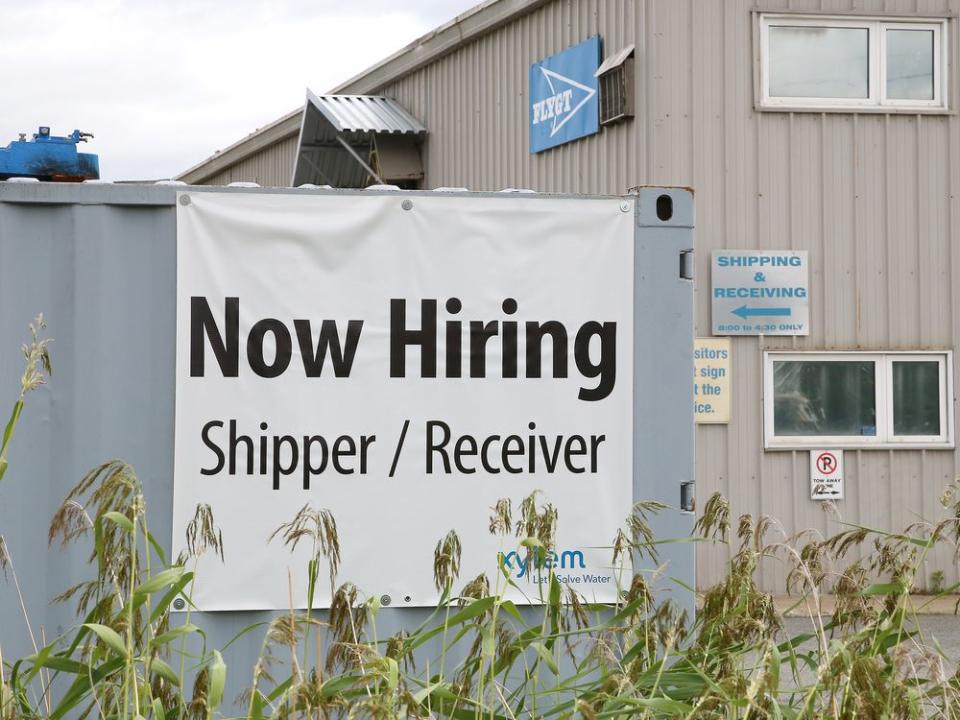'They're always looking for something better:' Workers ghosting employers more often in search for higher pay

Small businesses, already struggling to find workers amid labour shortages, are coming up against a new challenge: the people they do end up hiring are disappearing into thin air.
Ghosting, as the practice is known, is becoming a big problem, according to new research from the Canadian Federation of Independent Business (CFIB). One out of three small-business owners say they’ve hired someone over the past year who either never showed up for their first day of work or stopped coming in shortly thereafter. It’s happening during the interview process, too, with 37 per cent of owners saying they’ve had potential hires go dark without explanation.
In the United States, almost 85 per cent of workers admitted to ghosting an employer, either during the interview process or after, HR analytics company Visier Inc. said in a report released earlier this year.
Such ghostly behaviour couldn’t come at a worse time, because labour shortages and sky-high job vacancies make hiring — and, in turn, making a profit — more challenging. Shortages of skilled and unskilled workers are stifling growth for 53 per cent and 38 per cent of small businesses, respectively, says CFIB’s latest business barometer. At last count, almost one million jobs are still unfulfilled.
The uptick in ghosting comes as worker turnover is increasing. More than a third of small-business owners in Canada say employees are leaving at greater rates than they were this time last year, according to a recent survey from Express Employment Solutions, a staffing solutions company. Last year, only 24 per cent reported dealing with turnover problems.

On average, employee turnover costs companies $41,000 annually in expenses connected to lost productivity, rehiring and training, the Express survey says. For one in 10 companies, the price tag is more than $100,000 a year. Throw in the practice of ghosting, which saps employers’ time and energy, and the added costs are something many businesses can’t afford. “Ghosting is not only a frustrating waste of (employers’) time, it’s a big drain on their already limited resources,” Dan Kelly, president at CFIB, says in a news release.
The rising cost of living, combined with labour shortages and high vacancies, might be behind all this turnover. Inflation, which came in at 6.9 per cent in October, and the costs arising from higher interest rates meant to tame it, are adding pressure to peoples’ finances. At the same time, employers are desperate for labour, and workers know it, giving them more power to job hop in search of a fatter paycheque.
“(Skilled labourers) are in the drivers’ seat and they’re always looking for something better,” says one small-business owner (who asked to remain anonymous). “It doesn’t seem to matter what you’re offering them.”
As a result, business owners are navigating a cutthroat hiring environment, with poaching a common problem, she says. “There’s so much stabbing going on out there. It’s very difficult to keep a good workforce and then you can only give people so much, or pay them so much, which affects the bottom line. If you raise the cost of your product, then you don’t have the business.”
Epic burnout might be the catalyst behind the quiet quitting trend
The age of the toxic boss is over: Workers aren’t willing to suffer for a paycheque anymore
The quiet quitters are getting quiet fired: The silent war playing out in offices
Workers say low pay is the main reason why they’ve ghosted an employer, followed by receiving a more attractive job offer somewhere else, according to the Visier survey. >CFIB suggests the Employment Insurance (EI) program might also play a role in ghosting, letting people collect an income without having to work for it.
“We’re hearing from business owners who have experienced ghosting that some candidates prefer to stay on EI for as long as possible and may be applying for, or taking jobs, just to satisfy the requirements of the program,” Kelly says. The lobby group cautions that changes to EI, which the federal government is working to modernize, could further fuel employee disappearing acts by disincentivizing people from working.
Labour shortages, inflation and EI concerns aside, ghosting isn’t a behaviour to be proud of. “Job candidates and employees don’t have to take or stay in jobs they don’t like, but they should at least communicate their intentions clearly to their employer instead of leaving them scrambling and wondering,” Kelly says.
But there might be another reason why workers should think twice before vanishing. The labour market is strong, but it won’t be indefinitely. There could come a time very soon when ghosts will need to come calling for the jobs they once ditched without a word. Business owners aren’t likely to forget.
• Email: vwells@postmedia.com | Twitter: vwells80
This column was first published in the FP Work newsletter, a curated look at the changing world of work. Sign up to receive it in your inbox every Tuesday.

 Yahoo Finance
Yahoo Finance 